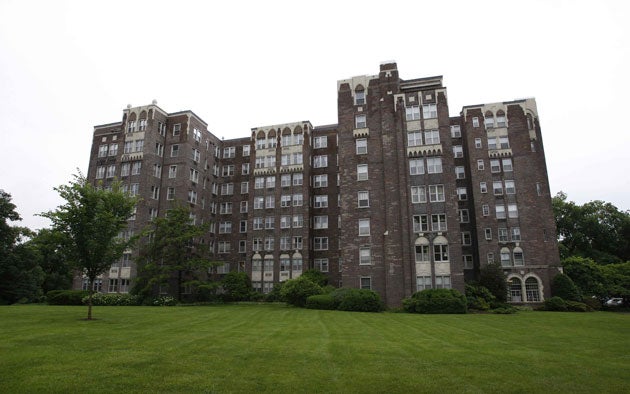US couple 'spied for Castro'
Agent 202 and his wife used supermarket trolleys to pass secrets to Havana

Your support helps us to tell the story
From reproductive rights to climate change to Big Tech, The Independent is on the ground when the story is developing. Whether it's investigating the financials of Elon Musk's pro-Trump PAC or producing our latest documentary, 'The A Word', which shines a light on the American women fighting for reproductive rights, we know how important it is to parse out the facts from the messaging.
At such a critical moment in US history, we need reporters on the ground. Your donation allows us to keep sending journalists to speak to both sides of the story.
The Independent is trusted by Americans across the entire political spectrum. And unlike many other quality news outlets, we choose not to lock Americans out of our reporting and analysis with paywalls. We believe quality journalism should be available to everyone, paid for by those who can afford it.
Your support makes all the difference.A retired State Department official and his wife have been arrested on charges of spying for Cuba, using supermarket trolleys among other tools to pass US secrets to the communist government in a security breach described as "incredibly serious".
The story of Walter Kendall Myers, known to his Havana handlers as Agent 202, is scarcely credible. He and his wife, Gwendolyn, spied for Cuba over three decades and were so highly thought of that Fidel Castro once granted them a private four-hour meeting. They did it for little, or no, financial gain, and were brought down by, of all things, the offer of a big cigar.
Kendall Myers had been under investigation for three years, since before he retired in 2007. The FBI made its move on 15 April. On a Washington street, an undercover agent approached Kendall Myers, claiming to be an associate of his Cuban handler, offered him a cigar, and proposed they meet at a Washington hotel later that night. The ruse worked, and Myers said he would bring along his wife.
The couple told the agent they had lived "in fear and anxiety for a long time", were not interested in regular spying again but would help where they could. Over the course of three meetings, they accepted a device to encrypt future emails, and, at a fourth meeting, they were arrested. On Friday, they pleaded not guilty to conspiracy to act as illegal agents and to communicate classified information to the Cuban government. Each is also charged with acting as an illegal agent of the Cuban government and with wire fraud.
The indictment said Kendall Myers worked his way into ever higher US security clearance. The couple apparently received little money for their efforts, but instead professed a deep love for Cuba, Castro and the country's system of government. The documents describe their spying methods changing with the times, beginning with old-fashioned Cold War methods – Morse code messages over a short-wave radio and notes taken on water-soluble paper. By the time they retired in 2007, they were reportedly sending encrypted emails from internet cafés. The criminal complaint says changing technology also persuaded Gwendolyn Myers to abandon what she considered an easy way of passing information, by changing shopping trolleys in a grocery store.
The couple live in a luxury co-op complex in Washington that over the years was home to judges, congressmen, and senators.
The indictment says Kendall Myers, 72, a former professor with a doctorate in international studies from Johns Hopkins University, disclosed to the State Department that he had travelled to Cuba for two weeks in 1978, saying the trip was for personal and academic purposes. The next year, a Cuban government official visited the couple and recruited them to be spies, the indictment says. At Cuba's direction, Kendall Myers allegedly attempted to get jobs that would give him access to classified information. The indictment says that in his last year of employment he viewed more than 200 intelligence reports related to Cuba. He often took notes or memorised material to avoid the risk of removing the documents, but concealed some papers he removed in a set of bookends.
Join our commenting forum
Join thought-provoking conversations, follow other Independent readers and see their replies
Comments